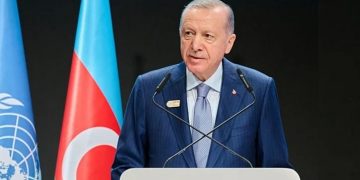 Lakhdar Brahimi, who took on the post in September, offered a bleak account as he briefed diplomats for the first time in a closed-door meeting on his recent talks in Damascus with Assad, and discussions with other leaders in the region.
Lakhdar Brahimi, who took on the post in September, offered a bleak account as he briefed diplomats for the first time in a closed-door meeting on his recent talks in Damascus with Assad, and discussions with other leaders in the region.
According to a diplomat inside the briefing, who demanded anonymity because he was not authorized to publicly to reveal details, Brahimi said he believed that Assad’s goal was to return the country to “the old Syria,” in which he and his father had ruled as dictators for four decades.
He said Brahimi had suggested Assad’s intention was to portray the uprising as fueled by outside nations, in an attempt to discount protests which began in March 2011 to demand an end to his rule. The uprising was inspired by the other revolts around the Arab world against authoritarian rulers.
The Security Council, the only U.N. body that can impose global sanctions and authorize military action, has been bitterly divided by Syria’s crisis. Russia, Syria’s key protector, and China have vetoed three Western-backed resolutions aimed at pressuring Assad to halt the violence and open talks with his opponents aimed at a transition of power.
With deadlock over the international response, the situation inside Syria has rapidly deteriorated with routine torture, looming food shortages due to a poor harvest and citizens fearing to seek hospital treatment when injured, Brahimi said, according to the diplomat.
The envoy told the meeting that about 2,000 schools had been damaged and others used as shelter by those who had lost their homes, while many factories and pharmaceutical laboratories were destroyed or falling into disrepair.
Activists claim nearly 30,000 people have already died in the uprising, including in attacks Monday by Syrian warplanes in the northern city of Aleppo.
Outside the briefing, which was attended by ambassadors, Germany’s Foreign Minister Guido Westerwelle said that the failed six-point peace plan put forward by Brahimi’s predecessor, Kofi Annan, should not be abandoned.
Annan’s plan, which included a cease-fire, never took hold and was largely ignored by the government and the rebels before the plan ultimately collapsed.
“I think the substance of this plan is still the best alternative,” Westerwelle said. “We have to solve the conflict in Syria but we also have to avoid a conflagration in the region, and I think this explains why we seek and why we work for a political solution.”
(Today’s Zaman)













